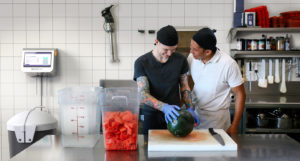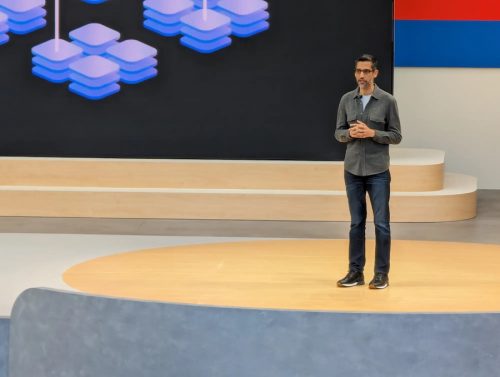NATIONAL REPORT—Food waste is enormously costly for hotel owners and managers across the US. Financially, the average kitchen spends 5-15% of food costs on food that is never eaten. From an operational point of view, kitchen staff lose countless hours preparing uneaten food. It also has a huge environmental toll. If food waste were a country it would have more impact on global warming than every country in the world, except China and the U.S.
What if artificial intelligence (AI) could help hotels to cut food waste in half? A breakthrough food waste solution has launched to tackle the problem, using AI to help hotels and other hospitality businesses to reduce food waste.
Alongside Middle East hotel chain Emaar Hospitality Group and retail giant IKEA, the technology has been tested in the field and is now ready to scale across hospitality companies across the Americas.
How can AI reduce food waste?
Using a form of AI called computer vision, Winnow’s new tool – Winnow Vision – automatically captures waste food via an intelligent camera that sits above the bin. As food is discarded over the course of the day, the data is collected in the cloud and shared with the team to help them cut food costs by an average of 3-8%.
Previously, simply collecting the data to understand what is wasted in the kitchen is a time-consuming and inaccurate process. Now, with the application of AI to automate data capture, Winnow Vision has surpassed human levels of accuracy in identifying food waste.
This major milestone ensures that kitchen teams receive pinpoint data to reduce waste without manually entering the data. The captured image data provides an extra layer of validation, giving confidence to the chef and hotel management team that the data is accurate.
For hotel chains with multiple properties across the country, reports on waste volume and value can highlight the top performing locations, and the locations which need further support to increase profitability.

Emaar hotels cut food waste by 72%
Emaar Hospitality Group deployed Winnow Vision at 12 locations across the Middle East to cut their costs, but also because they recognize that food waste is an issue that customers care about.
Like in the U.S., there is rising demand at the government level to reduce food waste. For the hospitality sector, an alignment with customer and government pressure can be blended with pragmatic business sense.
“We know that food is a big expense, but nonetheless the savings we made exceeded our expectations.” says Olivier Harnisch, CEO of Emaar Hospitality Group. “Across our 12 properties we reduced food waste by 72% in a short period of time—around $350,000.
Before launching Winnow Vision this year, Winnow has also been working with an international group of hotels and casinos, saving $30 million for clients annually, including some of the biggest names in the hotel sector like Accor, IHG and Hilton. By 2025, the aim is to save clients $1 billion in food savings every year.
Hotel chains across the U.S. have the opportunity to be the first to roll out AI in their kitchens nationwide. The opportunity is both financial and competitive—hotel chains can save thousands of dollars each year through the use of AI, and attract new customers who share the belief that food is too valuable to waste.
If you want to learn how your hotel kitchen could run more profitably and sustainably by cutting food waste,










